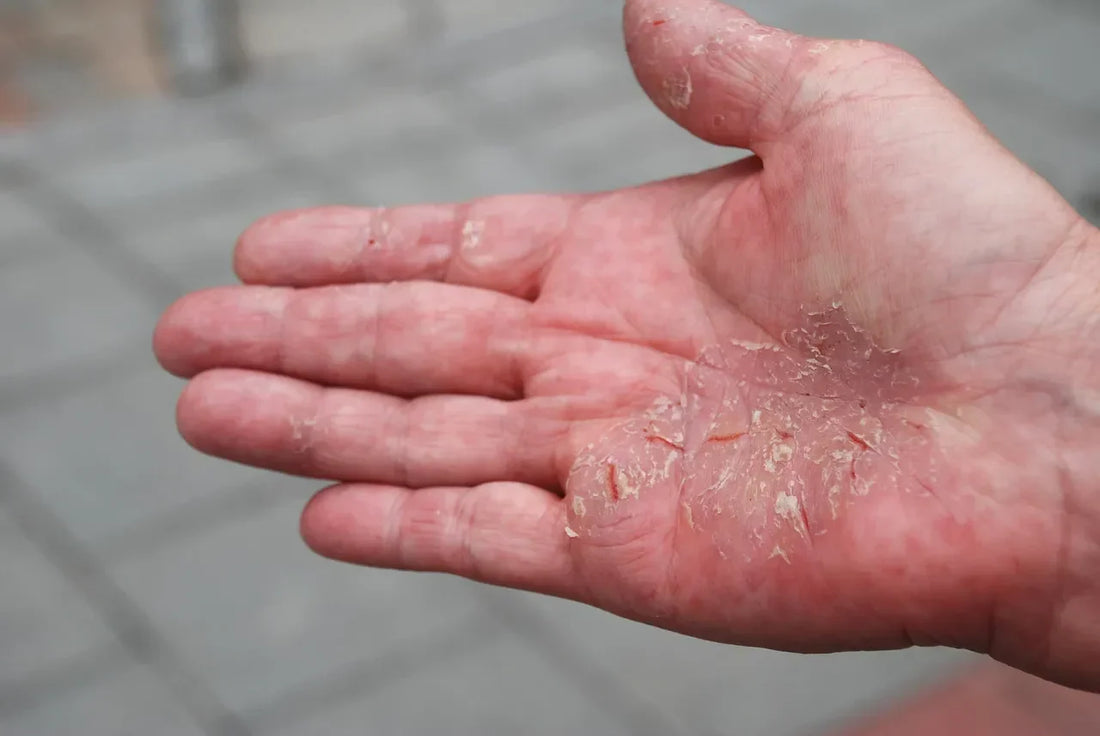
Psoriasis and the Itch: Treating It With Herbal Medicine
Share
Psoriasis can be an extremely frustrating and painful condition to manage, but the power of nature may hold some solutions. Herbal medicines have been utilized for centuries to alleviate symptoms associated with psoriasis, and recent studies are shedding light on their effectiveness. Could natural remedies be the key to overcoming this chronic skin disease? Let's explore the potential benefits of herbal medicine in treating psoriasis symptoms!
Introduction to Psoriasis and its Symptoms
Psoriasis is a chronic autoimmune skin condition that causes red, scaly patches to form on the skin. The symptoms of psoriasis can vary from person to person, but most often include itching, burning, and pain. Psoriasis can also lead to other health problems, such as psoriatic arthritis.
There is no cure for psoriasis, but there are treatments that can help to relieve the symptoms. Herbal medicines are one treatment option that can be very effective in alleviating psoriasis symptoms. Some of the most commonly used herbs for psoriasis include aloe vera, turmeric, and ginger.
Benefits of Herbal Medicines for Psoriasis
Herbal medicines have been used to treat a variety of ailments for centuries, and psoriasis is no exception. While there is no cure for psoriasis, herbal medicines can help to alleviate the symptoms and improve quality of life.
Aloe vera is a succulent plant that is often used topically to treat burns and other skin conditions. It has anti-inflammatory properties that can help to reduce the redness, swelling, and itching associated with psoriasis. Chamomile is a herb that has long been used for its calming effects. It can also help to soothe the skin and reduce inflammation. Lavender oil is another popular option for treating psoriasis. It has both anti-inflammatory and antimicrobial properties, which can help to heal the skin and prevent infection.
How to Choose the Right Herbal Medicine for Your Psoriasis
If you're considering using herbal medicine to treat your psoriasis, it's important to choose the right herbs for your individual needs. Here are a few things to keep in mind when selecting herbal medicines for psoriasis:
1. Psoriasis is a complex condition with many possible causes. As such, there is no one-size-fits-all approach to treatment. Herbal medicines can be very effective, but it's important to select those that are best suited to your individual case.
2. Work with a qualified practitioner who can help you select the appropriate herbs and tailor a treatment plan specifically for you.
3. Be patient. It often takes some trial and error to find the right combination of herbs that work for you. Don't give up if the first few attempts don't produce results - keep trying until you find something that works.

Potential Side Effects of Taking Herbal Medicines for Treating Psoriasis
There are a few potential side effects of taking herbal medicines for treating psoriasis, but they are generally mild and temporary. The most common side effect is an upset stomach, which can be alleviated by taking the herbs with food. Other potential side effects include headache, dizziness, and rash. If you experience any of these side effects, discontinue use of the herb and consult your healthcare provider.
Recipes
Herbal medicines have been used to treat psoriasis for centuries, and recent studies have shown that they can be effective in alleviating symptoms. There are a variety of recipes that can be used to make herbal preparations, and the following are some of the most popular:
-
A tincture made from equal parts of milk thistle, dandelion, and burdock root can be taken three times daily to help reduce inflammation and itching.
-
A tea made from calendula flowers is thought to be helpful in healing skin lesions.
-
A poultice made from comfrey leaves can be applied externally to soothe itchiness and promote healing.
-
A topical cream containing St. John's wort oil is often used to treat psoriasis patches.
-
An infusion made from bilberry leaves is believed to help reduce the redness and scaling associated with psoriasis.
Alternatives to Herbal Medicines
There are many herbal medicines that can alleviate psoriasis symptoms, but there are also some alternatives to herbal medicines. These alternatives include:
1. Topical treatments: There are a number of topical treatments available over the counter or by prescription that can help to relieve psoriasis symptoms. These include corticosteroids, coal tar products, retinoids, calcitriol, tacrolimus, and pipecuroniums.
2. Phototherapy: This involves using ultraviolet light to help to control psoriasis symptoms. It can be done in a doctor’s office or at home with a special lamp.
3. Systemic medications: These are medications that are taken orally or injected and work throughout the body to control psoriasis symptoms. They include methotrexate, acitretin, cyclosporine, and biologics.
4. Home remedies: There are a number of home remedies that can help to relieve psoriasis symptoms. These include oatmeal baths, moisturizers, aloe vera gel, tea tree oil, and castor oil.
5. Stress management: Stress can trigger or worsen psoriasis flare-ups. Learning how to manage stress can help to reduce the frequency and severity of flares.
Conclusion
In conclusion, there is no doubt that the power of nature cannot be underestimated. Herbal medicines are a great way to treat psoriasis symptoms without the need for harsh medications or chemicals. Not only do they provide relief from dryness and itchiness associated with this skin condition, but also have many other beneficial properties such as promoting better sleep and reducing inflammation in the body. If you are looking for an alternative to traditional treatments, why not give herbal medicine a try?
